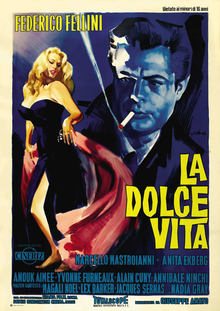
La dolce vita is a 1960 satirical comedy-drama film directed by Federico Fellini. It was written by Fellini, Ennio Flaiano, Tullio Pinelli, and Brunello Rondi. The film stars Marcello Mastroianni as Marcello Rubini, a tabloid journalist who, over seven days and nights, journeys through the "sweet life" of Rome in a fruitless search for love and happiness. The screenplay can be divided into a prologue, seven major episodes interrupted by an intermezzo, and an epilogue, according to the most common interpretation.

In Italian cinema, giallo is a genre of murder mystery fiction that often contains slasher, thriller, psychological horror, psychological thriller, sexploitation, and, less frequently, supernatural horror elements.

Black Emanuelle is a softcore sexploitation film from 1975 directed by Bitto Albertini. The film was set in Africa and shot mostly in Kenya. The music was composed by Nico Fidenco. Black Emanuelle was followed by a number of sequels, all revolving around the erotic adventures of Mae Jordan, a globe-trotting, hedonistic investigative journalist and photographer known to her readers as "Emanuelle". Her character has been described as "a strong and independent woman, sexually proactive, at the centre of wealthy young and old white men of power, and involved in any sort of depraved set and situation."
Marcel Bozzuffi was a French film actor. Internationally, he appeared as a hitman in the Oscar-winning American film The French Connection. In 1963, he married French actress Françoise Fabian.

Luis Enríquez Bacalov was an Argentine-born film composer. He learned music from Enrique Barenboim, father of Daniel Barenboim - conductor of the Berlin and Chicago orchestras, and from Berta Sujovolsky. He ventured into music for the cinema, and composed scores for Spaghetti Western films. In the early 1970s he collaborated with Italian progressive rock bands. Bacalov was nominated twice for the Academy Award for Best Original Score, winning it in 1996 for Il Postino. Bacalov composed significant works for chorus and orchestra. Before his death, he was the artistic director of the Orchestra della Magna Grecia in Taranto, Italy.
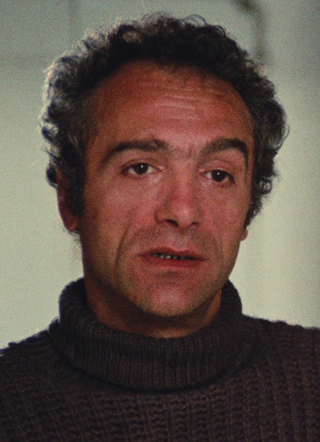
Luigi Pistilli was an Italian actor of stage, screen, and television.

Giuliano Sangiorgi is an Italian singer, songwriter and composer, forming part of the rock band Negramaro.
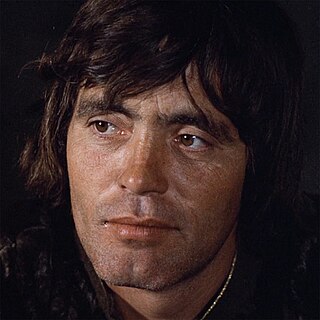
Franco Citti was an Italian actor, best known as one of the close collaborators of director Pier Paolo Pasolini. He came to fame for playing the title role in Pasolini's film Accattone, which brought him a BAFTA Award nomination for Best Foreign Actor. He subsequently starred in six of Pasolini's films, as well as 60 other film and television roles. His brother was the director and screenwriter Sergio Citti.
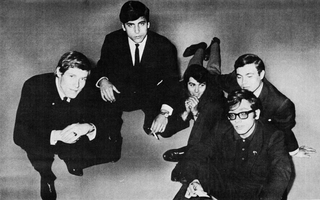
Los Bravos were a Spanish beat group, formed in 1965 and based in Madrid. They are most well known for their debut single "Black Is Black" which reached No. 2 in the United Kingdom in July 1966 and No. 4 in the United States, selling over a million records worldwide.

Anita Strindberg is a Swedish former actress who appeared in numerous Italian giallo films in the 1970s.

Luigi Comencini was an Italian film director. Together with Dino Risi, Ettore Scola, and Mario Monicelli he was considered among the masters of the "commedia all'italiana" genre.
Brunello is a character in the Italian romantic epics Orlando Innamorato by Matteo Maria Boiardo and Orlando Furioso by Ludovico Ariosto. Brunello is a dwarf and a cunning thief who works for the Saracen army of King Agramante. He first appears in the second book of Orlando Innamorato where Agramante intends to invade Europe and defeat Emperor Charlemagne. He has been told he has no chance of success unless he has the young warrior Ruggiero on his side, but Ruggiero has been hidden in a secret garden by the wizard Atlante and the only way to reach him is by using the magic ring belonging to Princess Angelica. Brunello undertakes to steal it and sets off for the fortress of Albracca where he not only manages to snatch the ring but also robs King Sacripante of his horse and the female warrior Marfisa of her sword. Marfisa sets off in pursuit but Brunello evades her and gives the ring to Agramante, who rewards him with a kingdom. The Saracens find Ruggiero at Mount Carena where they see him behind a wall of glass. However, the wall is too steep and slippery to climb, so Brunello suggests they trick Ruggiero out. He gets them to play war games in the plain beneath the mountain. Ruggiero, with his inherent love of combat, cannot resist and despite Atlante's pleas he leaves the garden and begs Brunello for his horse and armor. Brunello only agrees if he will join their expedition against France, to which Ruggiero happily consents.
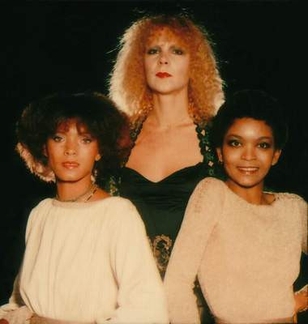
Belle Epoque was the name of a female vocal trio, based in Paris, France. The group first rose to popularity during the late 1970s with a disco remake of the song "Black Is Black", originally a hit in 1966 for the Spanish group Los Bravos.
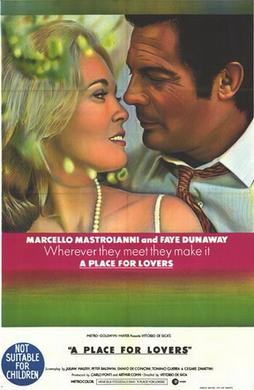
A Place for Lovers is a 1968 French-Italian romantic drama film directed by Vittorio De Sica and written by Brunello Rondi, Julian Zimet, Peter Baldwin, Ennio De Concini, Tonino Guerra and Cesare Zavattini. The film is based on the play Gli Amanti by Brunello Rondi and Renaldo Cabieri and was distributed by Metro-Goldwyn-Mayer.

Claudia Moroni, known as Claudia Mori, is an Italian producer, former actress and former singer.

Brunello Rondi was an Italian screenwriter and film director, best known for his frequent script collaborations with Federico Fellini.
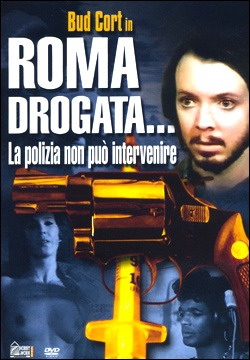
Hallucination Strip is an Italian 1975 poliziottesco film directed by Lucio Marcaccini as his first and only film.
Albert Mayr was an Italian composer of experimental and contemporary music. He studied music and composition in three different cities: at conservatories in both Bolzano and Florence and at the Darmstädter Ferienkurse in German.

Sammy Barbot, stage name of Jacques Édouard Barbot, is a Caribbean entertainer, singer and television presenter, mainly active in Italy.
Fabio Pittorru was an Italian novelist, essayist, screenwriter, journalist and film director.

















